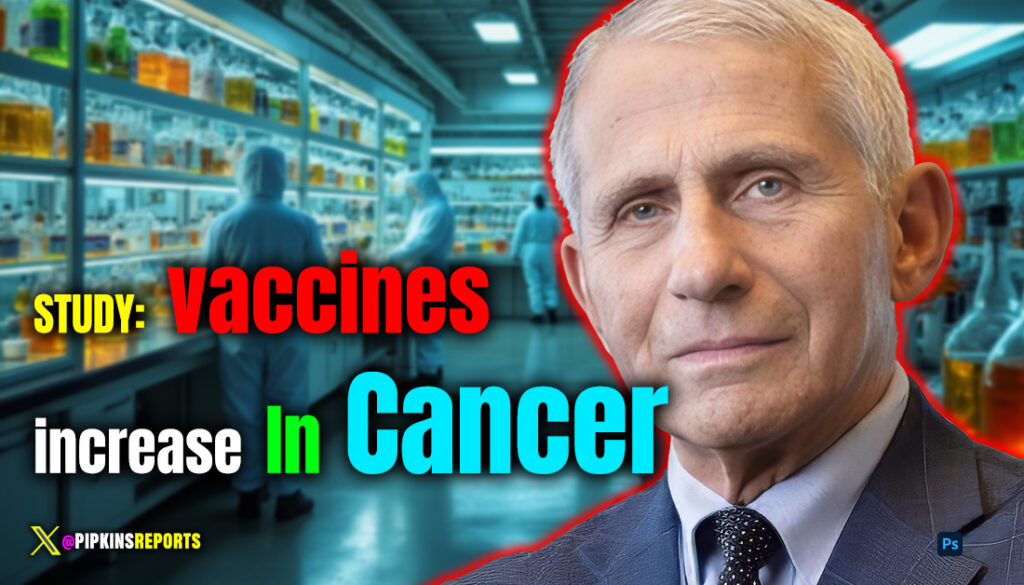South Korea – A groundbreaking study from South Korea has dropped a bombshell on the world of public health, exposing a potential link between COVID-19 vaccinations and sharp increases in several major cancers. Drawing from an enormous dataset of over 8 million people, the research—published this week in Biomarker Research (Springer Nature)—shows vaccinated individuals facing risks up to 69% higher for prostate cancer, with significant elevations across thyroid, gastric, colorectal, lung, and breast cancers in the year following vaccination. This isn’t fringe speculation; it’s hard data from a national health database, urging a hard look at vaccine safety in vulnerable populations.
The study, led by Hong Jin Kim from Seoul National University Bundang Hospital’s Department of Orthopedic Surgery, analyzed records from the Korean National Health Insurance Service for 8,407,849 Seoul residents vaccinated between 2021 and 2023. Using rigorous propensity score matching, researchers balanced 595,007 vaccinated participants against 2,380,028 unvaccinated controls, minimizing biases in age, sex, and health status. The results? Crystal-clear hazard ratios (HRs) signaling elevated dangers:
- Thyroid cancer: HR 1.35 (95% CI 1.21–1.51) – a 35% increased risk.
- Gastric cancer: HR 1.34 (95% CI 1.13–1.58) – 34% higher.
- Colorectal cancer: HR 1.28 (95% CI 1.12–1.47) – 28% bump.
- Lung cancer: HR 1.53 (95% CI 1.25–1.87) – a staggering 53% rise.
- Breast cancer: HR 1.20 (95% CI 1.07–1.34) – 20% elevated.
- Prostate cancer: HR 1.69 (95% CI 1.35–2.11) – nearly 70% surge.
These aren’t abstract stats; they translate to thousands of potential excess cases. For instance, the analysis flagged 1,000+ additional cancer diagnoses among the vaccinated cohort, with risks amplified by specifics like vaccine type. Viral vector vaccines (e.g., AstraZeneca) correlated with spikes in thyroid, gastric, colorectal, lung, and prostate cancers. mRNA formulations (Pfizer and Moderna) showed ties to thyroid, colorectal, lung, and breast. Even heterologous (mixed) regimens hinted at thyroid and breast elevations. Boosters? They pushed gastric and pancreatic risks even higher, with HRs climbing to 1.40+ in some subgroups.
Demographics painted a targeted picture: Men saw outsized gastric and lung threats, women thyroid and colorectal. Under-65s faced amplified thyroid and breast risks, while those over 75 grappled with steeper prostate dangers. The study’s multivariate adjustments for confounders—like smoking, BMI, and comorbidities—held firm, suggesting these patterns aren’t easily dismissed.
Kim and team hypothesize biological pathways: Vaccine-induced inflammation, or the SARS-CoV-2 spike protein’s potential oncogenic effects, could be fueling tumor growth. “COVID-19 vaccination could be associated with an increased risk of six specific cancer types,” they conclude, calling for optimized strategies—perhaps pausing boosters for at-risk groups—and molecular investigations to confirm causality.
| Cancer Type | Hazard Ratio (HR) | 95% Confidence Interval | Key Subgroup Notes |
|---|---|---|---|
| Thyroid | 1.35 | 1.21–1.51 | Higher in women under 65; mRNA & viral vector links |
| Gastric | 1.34 | 1.13–1.58 | Men at greater risk; boosters amplify |
| Colorectal | 1.28 | 1.12–1.47 | Women elevated; viral vector strong tie |
| Lung | 1.53 | 1.25–1.87 | Men dominant; both vaccine types implicated |
| Breast | 1.20 | 1.07–1.34 | Under-65s hit hardest; mRNA association |
| Prostate | 1.69 | 1.35–2.11 | Over-75s vulnerable; viral vector peak |
As expected, voices long aligned with Big Pharma interests have rushed to downplay the findings, citing “healthy user bias” from increased screenings among the vaccinated. But with the study’s robust matching and short-term follow-up capturing rapid-onset signals, these critiques feel like familiar deflection. The data demands action, not dismissal—real-world evidence from a top-tier database can’t be waved away.
Cancer doesn’t wait for consensus. Stay vigilant … if you have received a COVID-19 vaccine, get screened.
